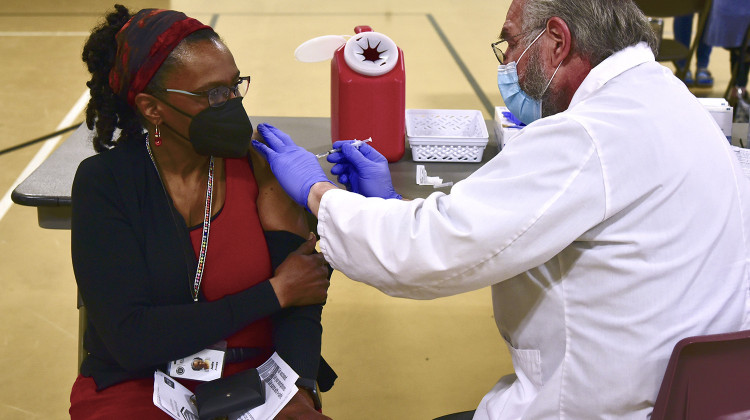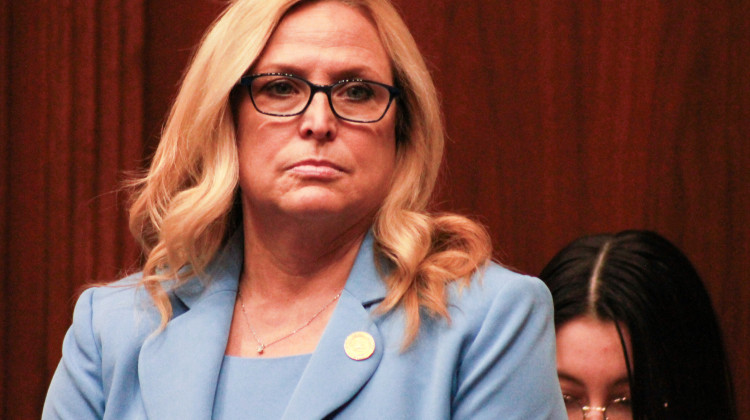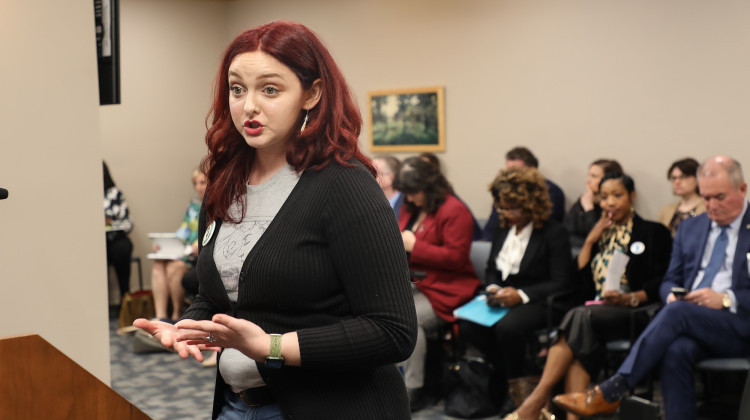Early one April morning, inmates at Indiana’s Plainfield Correctional Facility found a fellow inmate unconscious in his bed.
“He was barely breathing when we first tried to wake him up,” says one of the inmates, who asked to be identified by his middle name, Andrew, because he feared retaliation from prison staff. “For about 20, 25 minutes, the [correctional officers] were trying to wake him up, so finally, they called the medical emergency.”
The prisoner who was unconscious is diabetic, Andrew says. And many days, medications such as insulin arrive inconsistently—sometimes not at all, according to multiple inmate accounts. Andrew also says food is sometimes inadequate. Both can be serious problems for a prisoner with diabetes, a condition that requires patients to constantly monitor their blood sugar.
Andrew says one nurse helped only reluctantly—she was in a hurry to deliver meds before the end of the shift. It took two shots before the inmate regained consciousness. An officer—not the nurse, Andrew says—insisted the inmate be taken to the infirmary.
When the prisoner returned to their dormitory, Andrew recalls him saying, “I don’t remember what happened. I was probably gonna die.”
While the coronavirus spreads in Indiana prisons, other health needs are not always being met, according to prisoners and their relatives. Inconsistent delivery of diabetes medications was commonly reported, and prisoners say the pandemic has strained an already strapped health care system in the state prisons.
State officials disagree. “We take every measure to make sure that urgent, emergent care is provided, whether we're in a pandemic or not,” says Dr. Kristen Dauss, chief medical officer for the Indiana Department of Correction. “There is no backlog in the provision of making sure folks have medications. Those services are critical.”
Dauss says the department’s health care contractor, Wexford Health Sources, has not reported significant staff shortages. Some prisons received additional personnel from the Indiana National Guard, she adds.
“We haven't seen any significant change to staffing patterns due to COVID-19,” Dauss says.
A Wexford spokesperson did not respond to an emailed interview request. In 2017, the company was awarded a $309 million contract to treat Indiana’s roughly 27,000 prisoners for three years. The contract was recently extended for another year.
‘As soon as possible’
A prisoner housed in a different dorm at Plainfield reported a separate event about an inmate with diabetes, who was found unconscious in the morning and taken out on a stretcher. Even so, medications came late that day. “It’s 10:30 PM, and still no meds,” he wrote to his wife, adding that usually diabetic prisoners get insulin at 4 p.m. “They are still waiting 6 and a half hours later.”
Chiquita Armstead’s daughter complained that her blood sugar was high, which can cause life-threatening complications if left untreated.
“A nurse told me to wait until all of this blew over to see the doctor,” wrote the daughter, an inmate at the Indiana Women’s Prison in Indianapolis. That prison has been locked down for weeks during the pandemic. Inmates are stuck in cramped quarters, unable to exercise to help lower blood sugar levels.
“I could go into a diabetic coma,” wrote Armstead’s daughter.
Armstead says her daughter filed a medical request form to resolve the blood sugar issue. In response, she received a letter from health care staff on May 11: “This is an extremely busy time for medical staff … We ask that you try to manage your condition as best you can with commissary medications, and we will see you in medical as soon as possible.”
Armstead says she has repeatedly tried to contact prison officials for more information on her daughter, but has heard nothing back. She doesn’t know what medications, if any, could be purchased through the commissary to help manage diabetes.
“That’s the $100 question,” she says. “We’re scared. They’re not telling us anything and they don’t care about us.”
Armstead says it took several days, but her daughter finally saw a doctor.
Prisoners and their families have been worried about conditions inside prisons for weeks as COVID-19 cases have grown. As of May 20, more than 650 prisoners have tested positive for the coronavirus—more than 50 percent of those tested. In four facilities, the rate of positive cases is more than 80 percent. In four other facilities, no prisoners have been tested.
During the pandemic, medical problems in prisons have been reported across the country, says David Fathi, who heads the National Prison Project for the American Civil Liberties Union.
“Most prison health care systems are barely adequate at the best of times,” he says.
For instance, prisoners filed a class action lawsuit in 2017 against the Indiana Department of Correction, which at the time only treated 1.2% of prisoners with chronic hepatitis C infections. In January 2020, a federal court approved a plan that requires the department to immediately treat prisoners with more severe hepatitis C infections.
Fathi says health care contractors such as Wexford are driven by profit, which incentivizes them to keep health care costs low for the captive group of patients they’re paid to treat. “Almost without exception they are understaffed and under-resourced, and COVID-19 is going to stress those systems tremendously.”
The ACLU of Indiana says it has received its own reports of medication problems and other health care issues during the pandemic.
Fathi adds, “Bottom line: If you take this already rickety structure, and give it a good push, it’s probably going to crumble, and that’s what we’re seeing all across the country.”
This story was produced by Side Effects Public Media, a news collaborative covering public health. Jake Harper can be reached at jharper@wfyi.org.
 DONATE
DONATE







 Support WFYI. We can't do it without you.
Support WFYI. We can't do it without you.